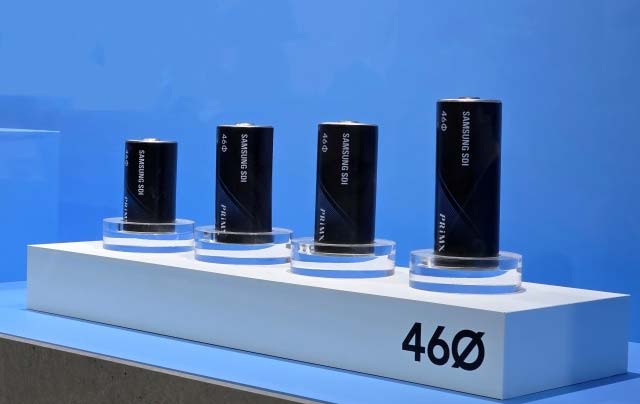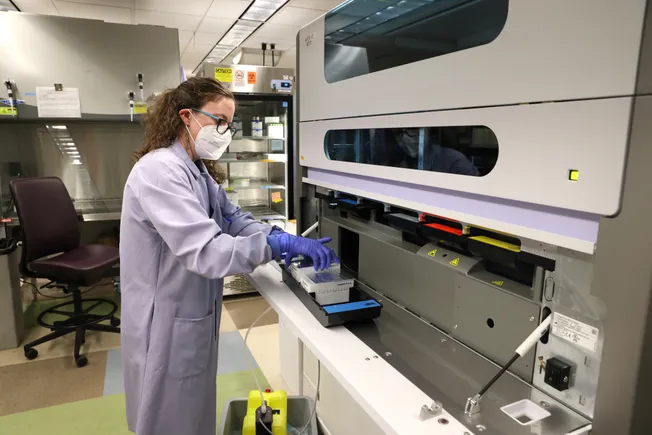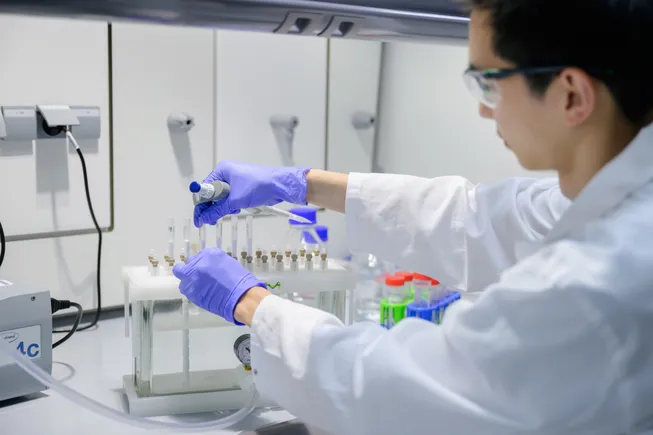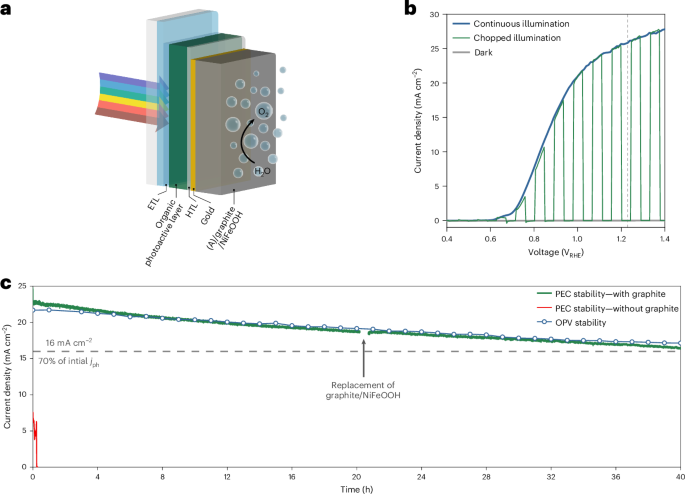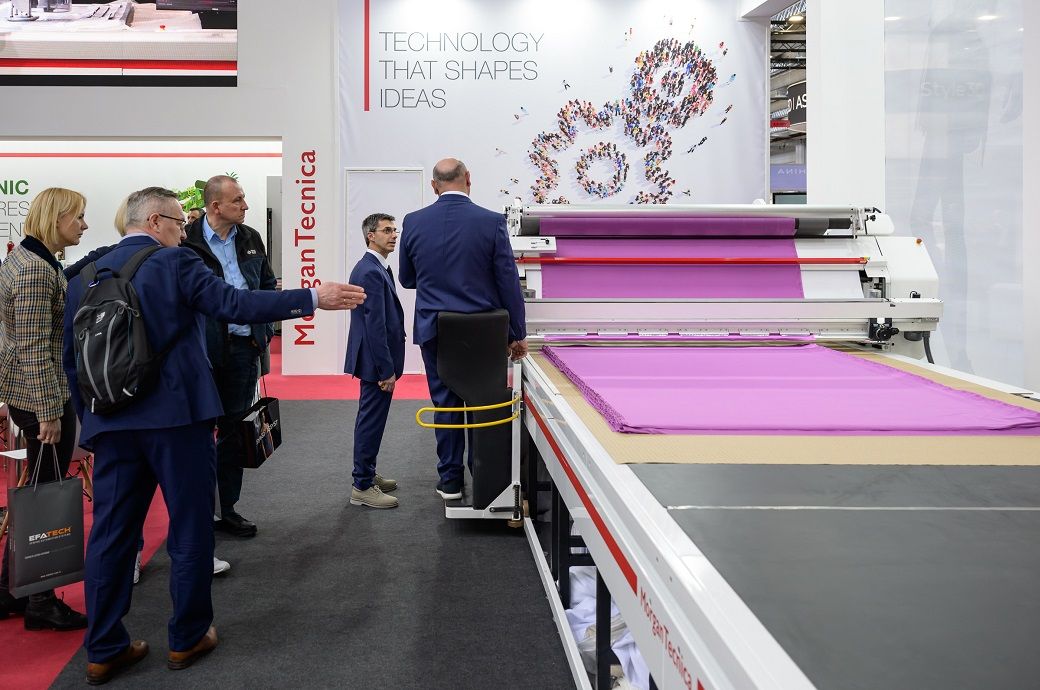The Electrochemical Acetone/Isopropanol Hydrogenation Cycle – An Alternative to Current Hydrogen Storage Solutions
Advanced Energy Materials, Volume 15, Issue 12, March 25, 2025.

While traditionally, coupling thermocatalytic LOHCs with existing hydrogen applications poses challenges due to the high temperatures required, a new solution emerges with the low-temperature electrochemical LOHC. This study investigates the influence of temperature and fuel concentrations on the polarization curves of the electrochemical hydrogenation and dehydrogenation in single-cells using PEM fuel-cell components and determines corresponding power-to-power cycle efficiencies for the EC-LOHC.
Abstract
Liquid organic hydrogen carrier (LOHC) systems offer a promising way to store hydrogen using the existing infrastructure for liquid fuels. While LOHC hydrogenation and dehydrogenation processes have so far mainly been investigated using thermocatalytic processes, this work explores the concept of a low-temperature (<80 °C) electrochemical acetone/isopropanol LOHC cycle and indicates its potential benefits for a future hydrogen economy. This electrochemical liquid organic hydrogen carrier (EC-LOHC) system builds on low-cost chemicals with low ecotoxicology. In this study, the influence of temperature and fuel concentrations on the polarization curves of the electrochemical hydrogenation and dehydrogenation units in a small, single-cell set-up is investigated using proton exchange membrane fuel cell components. Based on the experimental results, efficiencies are determined for a power-to-power cycle that can be competitive to mature hydrogen storage technologies, such as liquid and compressed hydrogen storage. Finally, material-related challenges are discussed, encouraging future research in this new field of hydrogen storage.



























